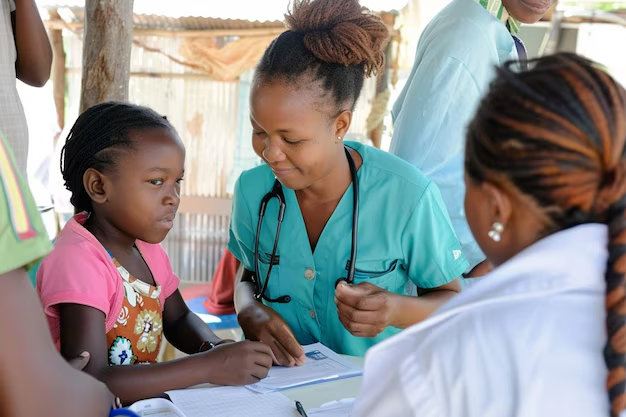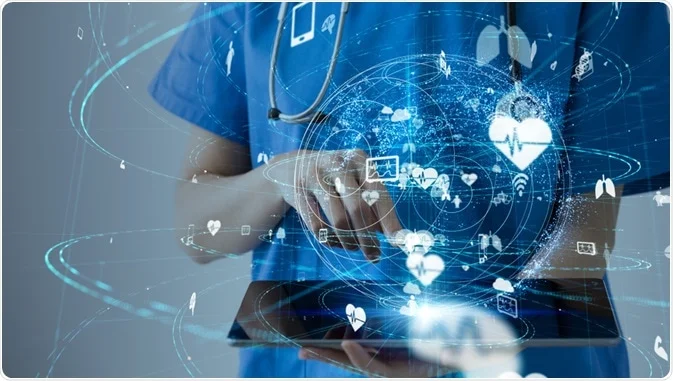Public health and safety are the pillars of a strong, healthy society. A nation or community’s ability to safeguard the well-being of its population is directly linked to the effectiveness of its health systems and services. At the heart of these systems is the Health Department, a government body charged with the responsibility of maintaining and improving public health, ensuring safety standards, and protecting citizens from health-related risks. This article delves into the vital role played by the Health Department in safeguarding public health, the functions it performs, and how its efforts contribute to a healthier society.
Key Takeaways
- The Health Department is responsible for promoting public health, preventing disease, regulating healthcare products, and ensuring access to essential healthcare services.
- Its key functions include disease prevention, public health education, healthcare service provision, and emergency response.
- The Health Department’s efforts help reduce disease outbreaks, improve health outcomes, and ensure the safety of the public.
- Health policy, surveillance, and data collection are critical components that guide the department’s actions in maintaining public health and safety.
What Is the Health Department?
The Health Department is a government agency or division within a government body that is responsible for overseeing public health services, managing health emergencies, promoting health policies, ensuring health safety, and managing health-related infrastructure. Its role is crucial because it directly impacts the lives of individuals within a population, aiming to reduce diseases, improve overall wellness, and promote equitable access to health services.
In different countries, the Health Department may be known by various names and operate in different capacities, but the core responsibilities remain the same. For example, in the United States, the Department of Health and Human Services (HHS) oversees a variety of agencies, including the Centers for Disease Control and Prevention (CDC), the Food and Drug Administration (FDA), and the National Institutes of Health (NIH). Similarly, in other countries, national health ministries or departments are tasked with similar objectives.
The Key Functions of the Health Department
The Health Department plays a central role in the functioning of a nation’s healthcare system. It performs a wide range of activities aimed at ensuring the health and safety of the public. These functions encompass the prevention of diseases, promotion of healthy lifestyles, regulation of health products, ensuring access to health services, and providing emergency response during health crises.
Here are the key functions of the Health Department:
Disease Prevention and Control

One of the Health Department’s most essential functions is disease prevention and control. This encompasses a wide variety of tasks such as monitoring the spread of diseases, implementing vaccination programs, and taking swift action during outbreaks. For instance, during the COVID-19 pandemic, the Health Department worked to monitor cases, enforce public health measures, and distribute vaccines to prevent the further spread of the virus.
In addition to preventing infectious diseases, the Health Department is also responsible for promoting chronic disease prevention. Programs designed to tackle diseases like diabetes, hypertension, and obesity are part of the long-term health planning by the department. Through education and public health campaigns, the Health Department helps citizens to avoid behaviors that may lead to chronic illnesses, such as poor nutrition and lack of exercise.
Public Health Education and Awareness
Health education is one of the most effective tools in promoting wellness and preventing illness. The Health Department plays an active role in educating the public about health risks, healthy living, and the importance of healthcare services. This could be in the form of campaigns to discourage smoking, promote vaccination, raise awareness about mental health, and encourage healthy eating habits.
Health education campaigns, often in collaboration with schools, media outlets, and community organizations, help to promote a culture of wellness that empowers individuals to make healthier choices for themselves and their families.
Providing Healthcare Services
The Health Department is directly involved in the provision of healthcare services. These services include routine immunizations, maternal and child health programs, mental health services, chronic disease management, and emergency medical services. The department operates community health centers, clinics, and other healthcare facilities that provide low-cost or free services to those in need.
In addition to direct healthcare services, the Health Department also oversees the quality of healthcare delivery in both private and public sectors, ensuring that medical facilities adhere to regulatory standards and provide safe, effective care.
Regulation of Health Products and Services

To ensure public safety, the Health Department regulates health products, including food, pharmaceuticals, medical devices, and cosmetics. This function is especially critical as unregulated products may pose health risks to individuals. By enforcing regulations, the Health Department ensures that medications, medical devices, and food products are safe and meet health standards.
The regulation of pharmaceuticals involves reviewing drug safety and efficacy data, while the regulation of medical devices ensures that items used in healthcare, from simple bandages to complex surgical equipment, are safe for use. For example, ensuring that vaccines undergo rigorous testing and safety assessments before being approved for public use is one of the key functions of regulatory agencies within the Health Department.
Surveillance and Data Collection
The Health Department is responsible for surveillance and data collection regarding public health threats, both chronic and acute. It tracks infectious diseases, such as influenza, tuberculosis, and HIV/AIDS, and keeps an eye on environmental health hazards, such as air pollution and water quality. This surveillance allows the department to detect outbreaks early, implement containment measures, and prevent widespread health issues.
Data collection is also vital for the department’s planning purposes, helping to assess public health needs, allocate resources efficiently, and create health policies that meet the specific needs of a population. For instance, tracking the incidence of heart disease can guide public health campaigns aimed at reducing risk factors like smoking and poor diet.
Emergency Response and Disaster Management
The Health Department is often called upon to manage public health emergencies, such as disease outbreaks, natural disasters, and environmental health crises. For instance, during the outbreak of an infectious disease, the Health Department plays an essential role in monitoring cases, conducting contact tracing, and advising the public on preventive measures.
In cases of natural disasters such as floods, hurricanes, or earthquakes, the Health Department ensures that emergency healthcare services are available, provides medical supplies, and supports hospitals and clinics affected by the disaster. It also works on preventing the spread of diseases in the aftermath of such events by ensuring the proper management of waste, clean water, and sanitation.
Health Policy and Planning
The Health Department is responsible for developing policies that guide the healthcare system. It provides guidelines on healthcare practices, manages funding, and ensures that resources are appropriately allocated to address the most pressing health challenges. The department also works with other government sectors to integrate health policies into broader national development plans.
Policies related to insurance, healthcare accessibility, mental health care, and long-term care fall under the purview of the Health Department. It strives to ensure that the healthcare system is accessible to all segments of the population, especially vulnerable groups such as children, the elderly, and low-income communities.
The Health Department’s Impact on Public Health and Safety
The work of the Health Department has far-reaching effects on public health and safety. Its efforts to regulate healthcare, educate the public, monitor diseases, and respond to emergencies play a crucial role in reducing the burden of disease and improving the overall well-being of communities.
The department’s work to prevent disease outbreaks and manage public health emergencies helps to prevent loss of life and mitigate long-term economic impacts. Through the promotion of healthy lifestyles, the Health Department has contributed to reductions in smoking, substance abuse, and the prevalence of obesity. Moreover, through its regulation of healthcare services and health products, it ensures that people have access to safe and effective treatments, helping to improve health outcomes for all.
Also Read: Understanding The Role Of Health Sciences Authority In Public Health Safety
Conclusion
The Health Department is the cornerstone of public health and safety. It plays a critical role in preventing and controlling diseases, regulating health services and products, promoting healthy lifestyles, and responding to public health emergencies. Its work ensures that citizens have access to the healthcare they need and that they are informed and protected from health risks. As the world faces increasing health challenges, the importance of the Health Department’s role has never been greater.
FAQs
What is the primary role of the Health Department?
The primary role of the Health Department is to protect and promote public health by providing healthcare services, preventing disease, educating the public on health matters, regulating health products, and responding to health emergencies.
How does the Health Department manage disease outbreaks?
The Health Department monitors disease trends, conducts testing and contact tracing, issues public health advisories, and collaborates with other agencies to contain the spread of infectious diseases.
What types of health services are provided by the Health Department?
Health services provided by the Health Department include immunizations, maternal and child health care, chronic disease management, mental health services, emergency care, and health education programs.
How does the Health Department regulate health products?
The Health Department ensures that health products such as food, pharmaceuticals, medical devices, and cosmetics meet safety and efficacy standards through testing, review, and regulation before they are approved for use.
Why is public health education so important?
Public health education empowers individuals with the knowledge to make healthy choices, prevent diseases, and improve overall well-being. It is a key strategy for reducing health risks and promoting healthier communities.
What is the Health Department’s role in disaster preparedness?
The Health Department plays a critical role in preparing for and responding to public health emergencies, such as natural disasters and pandemics, by providing emergency medical services, coordinating with other agencies, and managing public health risks.
How does the Health Department collect health data?
The Health Department collects data through surveillance systems, disease reporting, health surveys, and research studies. This data helps guide health policy, monitor health trends, and plan interventions.

